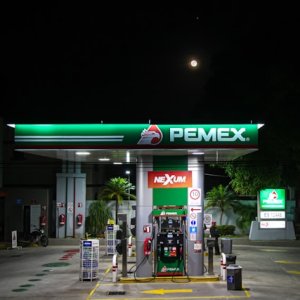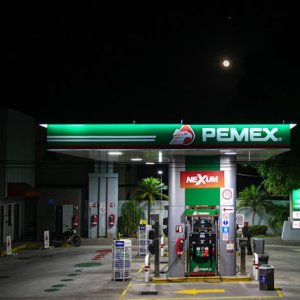The Possibilities of Mexico’s Downstream Future

STORY INLINE POST
Q: What is your evaluation of PEMEX’s refining strategy and system, particularly in terms of its viability?
A: As PEMEX ramps up its production back to pre-pandemic levels, it is also beginning to feed larger amounts of that crude into the national refining and processing system. To answer your question, it has to do with how PEMEX wants to present its numbers or its results as a company. If it wants these numbers to be those of an oil and gas company like any other, then it needs to optimize the value of its revenue streams, whether that is production to be sold or domestically processed. Common sense would tell us that producing and selling as much as possible generates short-term results in terms of income that is immediately available for the whole country. However, operationally, it also makes sense for PEMEX to reduce fuel and gas imports by domestically processing more crude. Reducing fuel imports by as little as 20,000 or 50,000 barrels a day can make a big impact on your balance sheet.
Having said that, the refining system in Mexico has two structural problems, which everybody is aware of. One is the lack of deep conversion capabilities, which means that you need deeper conversion processing power to destroy all of the fuel oil and produce larger amounts of gasoline and diesel. The other is that the production of light sweet crude has declined, particularly the Olmeca mix. The country’s refining system needs this input but Mexico has not been able to offset the decrease. Other companies in the world that face this situation usually have two options. One is to invest in reversing this decrease of light sweet crude production. The other is to import that same crude. For historical, social and political reasons, Mexico has not been allowed to import crude. Just before the present administration began, between 2018 and 2019, the first-ever crude imports to Mexico from the US took place. There is plenty of volume that could be imported from the Permian Basin. There could even be the possibility of large-scale integration and huge logistical investments if Mexico wanted to take advantage of the availability of Permian crude and was willing to import it.
Q: How does PEMEX’s ownership of Deer Park impact its refining strategy?
A: I believe the decision to purchase Deer Park was a great one. To put it concisely, Mexico needs more refining capacity. Deer Park is not the only refinery that was up for sale in that vicinity. For instance, Shell’s Convent refinery in Louisiana was also up for sale and it found no interested parties, so Shell decided to simply shut it down. Imagine if PEMEX had come in with a low offer like US$50 million or US$100 million? Most likely, they would have added that refining capacity as well. What I am saying is that there are opportunities in the US refining system. Some companies want to get rid of some capacity. Many of these assets are in very good condition and are very efficient. Before the purchase, Deer Park was already the chosen refinery to process the largest amount of Maya mix crude ever; no Mexican refinery has processed as much Maya crude as Deer Park, so this also helps answer the question of why it was such a good idea for PEMEX to own it in its entirety.
Q: How does the purchase of Deer Park establish new standards for Mexico’s refining system?
A: The refinery can adjust its daily operations to efficiently process different crudes with different chemical compositions depending on the market’s price fluctuations for crudes to be inputted and the refined and unrefined oil products to be outputted. This is the standard in other refineries all over the world but that same customization menu in Mexican refineries only includes the three crude mixes domestically produced: Maya, Olmeca and Istmo. That is a suboptimal refining system. Deer Park does not put Mexico at full self-sufficiency in terms of refining capacity but it sure gets us closer.
Global consultancy Stratas Advisors provides full spectrum coverage of the energy sector. The company delivers data, analysis and insight to leading businesses, governments and institutions.








 By Pedro Alcalá | Senior Journalist & Industry Analyst -
Thu, 08/19/2021 - 10:17
By Pedro Alcalá | Senior Journalist & Industry Analyst -
Thu, 08/19/2021 - 10:17















